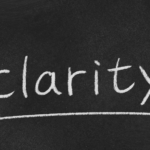|
It’s easy to become annoyed with somebody who blames you for their hurt.
It’s easy to judge how they’re not stepping into maturity.
It’s easy to reject them for not being the person you thought they were.
But let me ask you this: are you that perfect?
A love story...
The other day, one of my best friends (let’s call him B.) called me and shared how his new love interest (M.) was appalled by the fact that he and his female friend (K.) of 15 years were going on a vacation together, his 10-year-old son joining too, and slept in the same bed.
As soon as M. found out about him sharing a bed with another woman, she bugged him about it the whole week, basically casting a shadow on what should’ve been a sunny, relaxing week in Greece.
Being a fairly free-thinking bloke, B. had told M. about their shared vacation up-front, yet failed to mention the bed-sharing, and didn’t see her trigger coming.
He was bummed out by her demanding tone and the fact she bugged him all week about something that didn’t pose any threat to their relationship (in his eyes). "This is just who I am, how I interact with friends, nothing to it." he argued his case.
Especially when M. unconsensually included K. into their conversation, things started to flare up between B. and K. as well. “I don’t want to be put in between!” K. emphasized to B. “You’re a forty-year-old woman, grow up,” she told M. directly.
Now, B. didn’t really know what to do. The situation almost cost him his friendship with K. The past months had been amazing with M., and as he travels a lot, it’s very hard for him to find a likeminded soul who ‘gets’ him; M. does. Would he throw this away after this week?
So, dear reader. What would you do?
What the trigger is pointing us towards
Perhaps you wouldn’t even share a bed with your friend in the first place. Problem solved.
Maybe you would, but you think you wouldn’t attract somebody who thought so differently about this.
Maybe you would’ve discussed it up-front.
The thing is… it’s not about this particular instance, is it?
It’s about the fact that two individuals come from a different background, have different (traumatic) experiences and may get triggered by different situations – and then try to find a way to relate to each other, which is not always roses and rainbows.
Fact is: you will get triggered. That’s inherent to relating.
Your love interest or partner will too. And you may think that there’s no reason for them to react the way they do, but their nervous system has a different opinion ;-).
Instead of judging, rejecting, becoming appalled and outraged over their immaturity…
… how about taking a step back?
What’s really happening here?
What is actually touched upon in them – regardless of the current situation?
Coming back to the Voice of Wholeness
Apparently, their nervous system is activated and they feel a sense of threat.
In that state they may pick a fight, become offensive or defensive, walk away, turn inward, become passive aggressive, or freeze altogether.
In that state, in which their inner child is acting up and the Voice of Hurt speaks, they cannot see the full scope of the situation. They only see the 5% of their truth and trigger.
Perhaps they’re able to regulate themselves and get out of that state and step back into adulthood.
Maybe not.
Should we reject them for being imperfectly human – even if it’s irrational?
Or can we keep a broader viewpoint by being compassionate for the unsafety they’re experiencing?
(And... what if the roles were reversed?)
Can we maybe see how we can support them a little in calming down the nervous system, and seeing if there’s an opening to have a mature conversation, letting the Voice of Wholeness in?
...the love story continues
I recommended B. to not dismiss M.’s experience, even though she may have not dealt with the situation as maturely as he wanted her to.
Because indeed, we all have our pain. The voice of Hurt will sometimes overrule the voice of Wholeness.
“Invite M. to a conversation and listen to her. Hold space for her emotions, maybe even let her rant a bit. But then also ask her what it touches in her, so she can slowly tune into her own feelings, rather than the story, and own what’s truly happening inside. Ask her what she needs; behind every fear is a need. Find out where you can meet each other in this; how can she find safety within herself and you? How can you stay true to yourself, while also providing her with the safety she needs?”
The outcome might still be that they can’t figure things out. Maybe they both can’t step into their adult self.
But they both can.
In the end, compassion brings us so much closer than outrage, dismissal, rejection, judgement or wanting to be in your right.
After all, do you want to be right, or do you want to be loved?
If you'd like to mature in relating, being able to have more understanding and compassion for others, I'd love to support you in that. You deserve your relationships to succeed!
Much love,
Michelle
|





